In the Time of the Butterflies by Julia Alvarez (Books 2023, 20) 📚
This isn’t the kind of thing I’d normally think of reading, but I’ve joined a book club at work, and this was the latest book. The China Míeville I read recently was the first.
This one is a historical novel based on the true story of the Mirabal sisters, three women from the Dominican Republic who were assassinated for political activism by the regime of the dictator Trujillo, in 1960. Among the history of Latin American dictatorships, that was one I had never heard of.
A fictionalised story, bringing the characters to the fore. There’s relatively little about what they actually did regarding revolutionary activities, but lots about them as daughters, as mothers. It’s told from four points of view: each of the murdered sisters, Patria, Minerva, and Mate; and that of their surviving sister, Dedé.
It’s a beautifully written novel, heartbreaking because you know how it’s going to end, and because the characters are so well-realised, so brought to life.
The day they were murdered, the 25th of November 1960, is memorialised by the UN as the International Day for the Elimination of Violence Against Women.
The Running Grave by Robert Galbraith (Books 2023, 19) 📚
It’s only a few days since I finished — just over a week since the year-long wait was over — and it seems like ages. Now we’re back into another wait — hopefully not more than a year — till we find out what’s next for Strike and Robin.
Here, Robin has to go undercover to investigate a cult. By which I mean, she has to sign up as if she were a believer, and go deep, deep undercover. It gets very tense.
Minor spoilers follow.
I didn’t enjoy this as much as the previous one or two, I think. Certainly at first I was a bit disappointed because of the time-jump. We’re eight months after the end of The Ink Black Heart, when I had expected it to continue straight on, the way Troubled Blood flowed right into IBH.
But I think the main problem was that the two main characters are separated for much of it, precisely because she’s undercover, so can’t really communicate with him.
Of course, once it all kicked into gear, the pages kept turning like they always do. But, while it was great to see them bring down an appalling cult, it just wasn’t as emotionally resonant for me as, especially, the previous two.
The Net, 1995 - ★★½
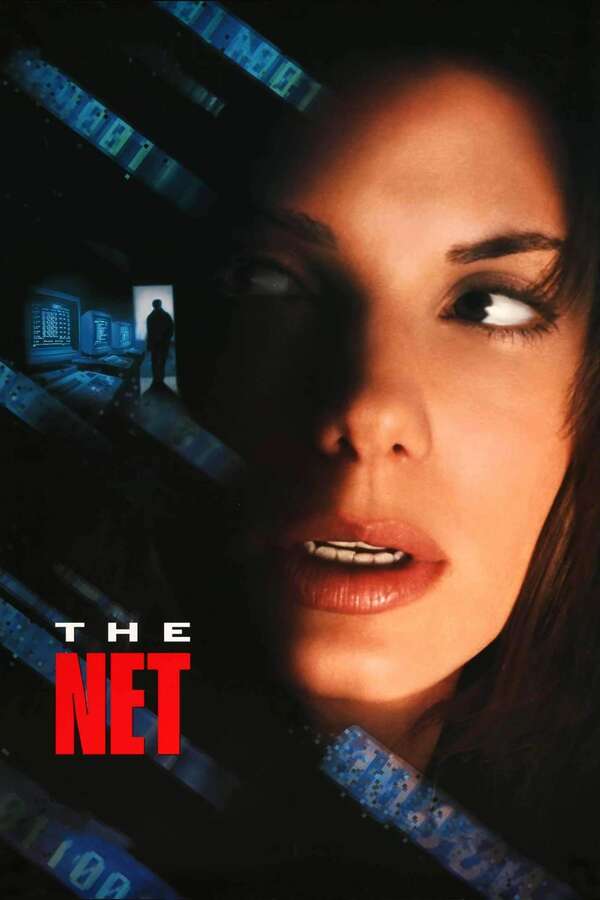
I know I’ve heard comments about this over the years, but I can’t remember whether people say it's surprisingly good, or so bad it's good.
It's somewhere in between, of course. It's very much of its time, which was 1995 — the same year as The Matrix, if I’m remembering correctly. And while it comes from a place not that far from The Matrix — it’s about hackers and how our lives are tied up with computer systems, after all — it’s very different.
Not least because it’s far more a realist piece, compared to the SF/fantasy stylings of the Wachowskis' film. Here, Sandra Bullock is a freelance computer expert of loosely defined skills, who gets caught in the backwash from the corruption of a sometime client’s security software.
Something like that, anyway. It starts very slowly, despite a dramatic prelude incident, but she’s soon on the run, wooed and threatened by a glamorous hacker/gangster.
Out on her own with no one she can trust, she has to trust herself.
It's not bad. Probably not so-bad-it’s-good, either. Just OK.
Ceremonial Doom Bar with the new Strike & Ellacott novel. 📚

Hazel O’Connor trending on Twitter. Mainly because of people saying ‘I saw Hazel O’Connor was trending and feared the worst, but it’s fine.’
Looks like someone asked for ’80s songs with the best sax', and ‘Will You’ fits. Thought Gerry Rafferty should be there, but ‘Baker Street’ was 1978.
Canal Dreams by Iain Banks (Books 2023, 18) 📚
I’ve always considered this the least of Iain Banks’s novels. As, I think, did he. If I remember correctly, this was the one about which he said he wrote it without a plan, and he’d never do that again.
So it’s strange, coming back to The Great Banksie Reread, and reading this for the first time in many years, to find that I liked it far more than I expected to. (Funny to note that my only other reference to it here was saying it was better than I remembered.)
It’s not that bad at all. It doesn’t meander the way you might expect the ‘no plan’ thing to imply. What is striking is how apt the title is. A significant proportion of the narrative is taken up with the main character’s dreams. All of which either illuminate her past or tie in to other events in the plot, so they make sense.
But whichever novelist it was that I remember saying, ‘Never have a dream sequence’ — Chris Priest, I think — must hate it.
Tried Siri’s new slightly more conversational mode in iOS 17. Said ‘Siri, pause’ while a podcast was playing out loud, and it did. Said ‘Thank you,’ and it said, ‘You’re welcome,’ which is nice.
Still no Scottish voice, though.
This is a good piece about the different ways we communicate:
Are you a writer or a talker?
That is, when you need to think about something, do you generally reach for something to write with, or look for someone to talk to?
I’m definitely a writer, and I know how it feels to explain something in careful detail, in a document, an email, or just an instant message, and have someone reply with, ‘Maybe a quick call to talk about it?’
This helps me to realise that I shouldn’t get infuriated at them. They just have a different communication style.
A Star Is Born, 1954 - ★★½
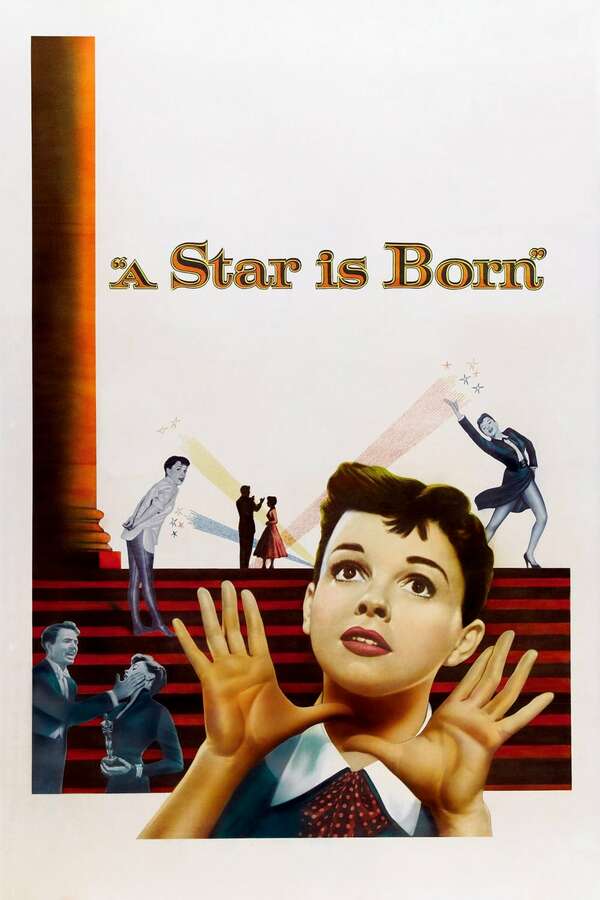
The 1954 version of A Star is Born has in it the bones of a great film. It is not, however, the great film it’s reputed to be.
I should start by noting that our enjoyment of this was marred by the fact that the sound was out of sync. We rented it from Apple TV on our Roku box, and it was out from the start. I tried all the suggestions I could find online to fix it, short of a factory reset. Thing is, all of those were about the sound being out of sync on the Roku.
But the Roku was fine, in every other app, and in other things in the Apple TV app (great to have The Morning Show back). No, the problem here was that particular file, it seemed like.
Maybe there was a way we could have forced a redownload of it, and got a different version. If so, it wasn’t to be found.
But you adjust, you put up with things. We were startled half an hour or so in (to a three hour film, I note) when the video stopped and was replaced with a sepia-toned still image. Clearly a production still. The audio, and the story, carried on. The picture changed to another still. Visuals came back, to a long shot. Then another still.
This was strange enough that it deserved duckducking. Turns out we were seeing the result of studio meddling. It seems a producer, believing it was too long, made the decision to cut it. Without the director.
And later the studio, in a BBC-Doctor Who-video-wiping level of stupidity, melted the offcuts down to reclaim the silver.
Thing is, the producer may have been wrong at the time — according to that story, the shortened version was less popular — and he was certainly wrong in what he cut; but he wasn’t wrong about the film being overlong.
That may be unfair. Three-hour films can work perfectly well, after all. No, the edits should have been made at the script stage.
Or maybe at directing.Because this film is incoherent at times. A sudden cut and it’s months or years later with no sense of what went on in between. That can be fine, it can work well. Except here it felt like they had a series of scenes that they wanted to show, and they just bashed them together without a thought for how the story would flow.
There are some great moments. Judy Garland has a fantastic voice, of course, and is a perfectly fine actor, and a very good physical actor, it turns out.
A great voice, rubbish songs, unfortunately. Getting her to sing a song that includes the word ‘somewhere’ does not make it as good as the song she’s most famous for.
Honestly, that and the song-within-a-film-within-the-film (‘Born in a Trunk’, I think it was called) are as much as I remember about the music.
I’m sort of keen to see if the seventies or twenty-tens versions are better. I’ve got to imagine they must be.
Shorter, anyway
Fatal Revenant: The Final Chronicles of Thomas Covenant, Book 2 by Stephen Donaldson (Books 2023, 17) 📚
Wordy, as I mentioned before. Long. Unnecessarily repetitive.
But I enjoyed it nonetheless.
I’m quite glad, though, I don’t have the other books yet. I feel it’s best to take a break after a story like this. Let it sink in. Prepare yourself, maybe, for the next one.
Anyway, more of the same: The Land is in danger, Linden Avery’s son is in Lord Foul’s clutches, and she’s prepared to do just about anything to save it, and him. But especially him. I expect we’re going to see a situation where she puts the whole Land — the whole of Earth, indeed — in danger, by trying to save Jeremiah.
Maybe she already has.
Oh: people have far too many different names in this. I mean, names by which various people refer to them. In the very last chapter someone refers to ‘The Timewarden’. I was like, ‘That sounds like The Doctor; what the hell is going on?’ But they just meant Thomas Covenant.
In the Heat of the Night, 1967 - ★★★
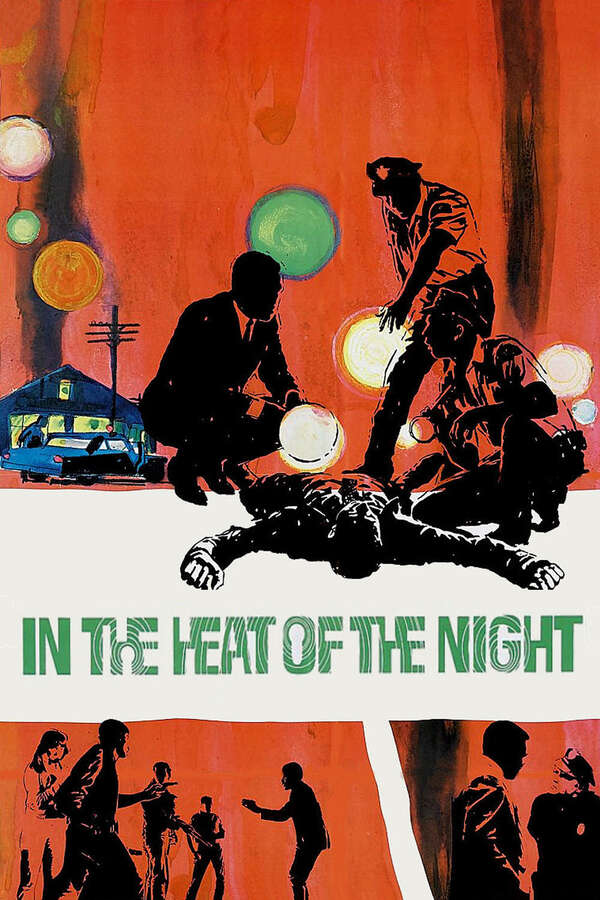
A Black cop helps a white police chief investigate a murder in a southern (US) town. After first being arrested on suspicion of the murder, of course.
Compared to how things appear today in the US, this feels very gentle. Even when Sidney Poitier's Mr Tibbs is threatened by racist thugs, there's no real sense of menace.
But it's a good story, sending positive messages, and well worth a watch.
Speaking of ChatGPT, I like Cory Doctorow’s explanation of it and its cousins from his latest piece:
AI chatbots are mirrors of experts, only instead of giving you informed opinions, they plagiarize sentence-fragments into statistically plausible paragraphs.
Dave Winer (I think he’s still @dave on Micro.blog) talks about using ChatGPT to
make calls about a user’s WordPress account. I want to know what sites the user is following in their reader app.
ChatGPT notwithstanding, I’m mildly horrified that a) WordPress makes that info publicly available, and b) Dave wants to use it.
Straight to Hell, 1987 - ★★
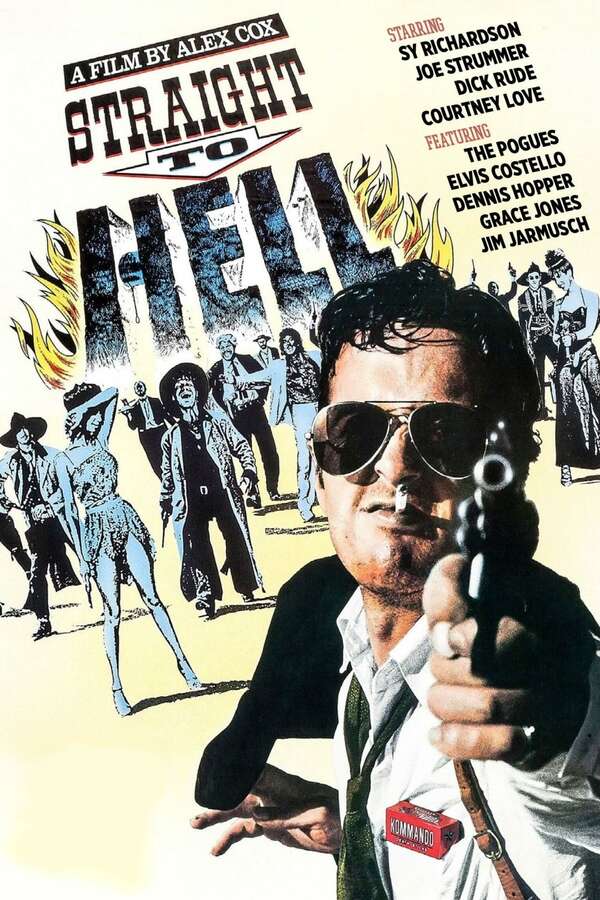
Alex Cox made a spaghetti western, with Joe Strummer, the Pogues, Elis Costello, Courtney Love 'acting' in it. Plus some proper actors.
The plot is completely incoherent, but I'm glad it's there.
Still, the best bit is the closing credits. Not because it's over, but because The Pogues' 'Rake at the Gates of Hell' plays over them.
Frances Ha, 2012 - ★★★½
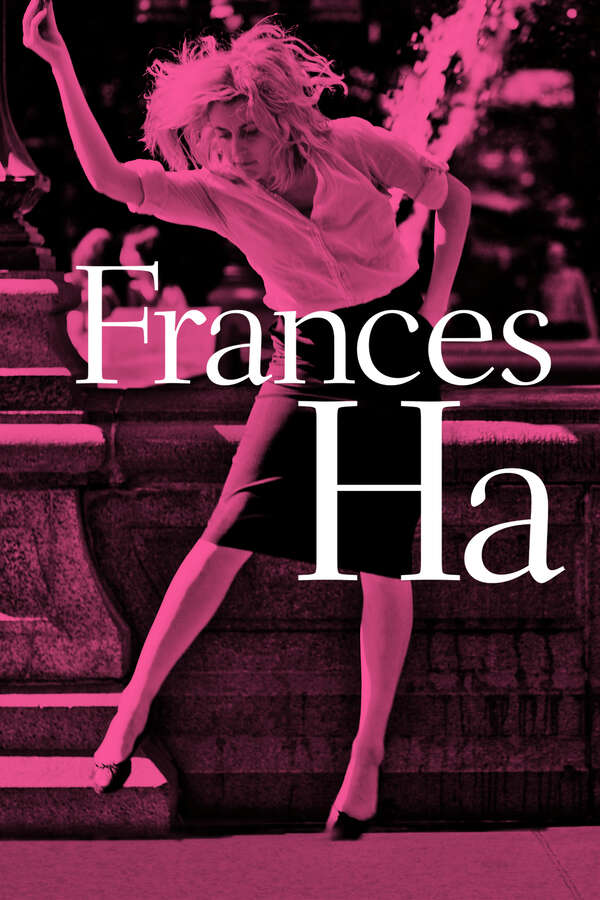
It’s as if a French New Wave film had been made in New York in the early 2000s (with a quick visit to Paris thrown in for maximum effect).
Written by Greta Gerwig and Noah Bauerbach, starring the former and directed by the latter. Frances is a would-be dancer/choreographer with friend, relationship, money, and apartment troubles.
Well worth a watch.
Well, it’s obvious that no one reads this, or they’d have drawn my attention to the ridiculous typo in the title of the last but one post. And of the book it was naming. My apologies to Becky Chambers.
Cold Comfort Farm by Stella Gibbons (Books 2023, 16) 📚
Normally speaking I’d claim a novel written in the 1930s and set in the late 40s for science fiction. But this doesn’t quite reach the threshold. There are around three obvious things that are futuristic: a reference to the Anglo-Nicaraguan war of 1946; ‘air mail’, where a package sent from London is dropped into a field in Sussex; and the astonishing combination of phone and television, allowing the callers to see as well as hear each other! Or rather, one caller to see the other, since phone boxes don’t have ‘television dials’ (but must at least have cameras).
Oh, and the train service has become rubbish, not because of the car or Beeching, but because (wealthy) people mostly fly.
But all that is nothing compared to how funny and overall good this novel is. Stella Gibbons wrote many other novels, but all of them are out of print but this, which is a great shame.
The Long Way to a Small, Angry Planet by Becky Chambers (Books 2023, 15) 📚
I started readingthis a few years back, and stopped after the first chapter or so, because it seemed too similar to the thing I was trying to write at the time. I didn’t want to be overly influenced, or worse, unconsciously plagiarise it.
But it’s always been in the back of my mind. And recently I’ve been trying to get back into that novel I was working on then, and finding it difficult. So I thought maybe reading the space opera I backed away from because it was too similar to my own nascent space opera would be just what I needed to get me kickstarted.
That hasn’t quite happened yet (maybe because I read it on holiday), but I loved the hell out of this.
Great characters you enjoy spending time with. A plot that’s just believable enough, with stakes that are high for the characters and then get higher. An interesting, believable galactic political background, with Earth as very much the minor player.
None of the nonhuman characters feel really alien, except from in their physical descriptions, but that’s OK.
I’d say, if you liked Firefly, you’ll like this.
Piranesi by Susanna Clarke (Books 2023, 13) 📚
Piranesi has always lived in the house; even if that’s not his name, which it may not be.
A fantastic and fantastical, strange book, this; much simpler and shorter than Susanna Clarke’s previous, Jonathan Strange and Mr Norrell, which I loved. I kind of love this, too.
I don’t have a lot to say about it, though, as to say much would be to spoil it.